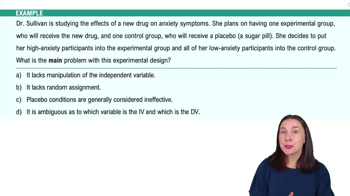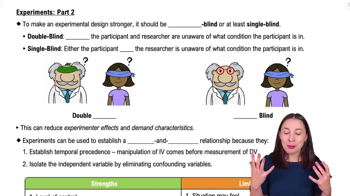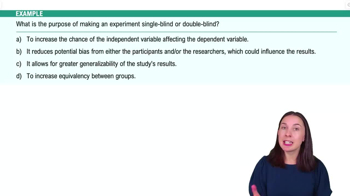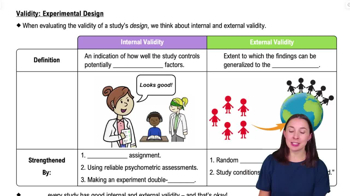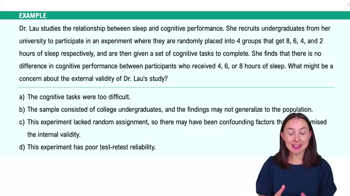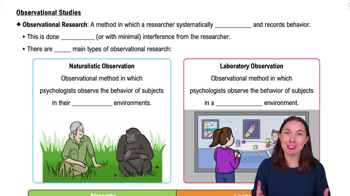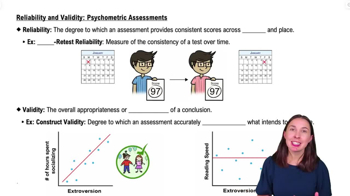Table of contents
- 1. Introduction to Psychology1h 43m
- 2. Psychology Research2h 20m
- 3. Biological Psychology2h 41m
- 4. Sensation and Perception28m
- 5. Consciousness and Sleep32m
- 6. Learning41m
- 7. Memory34m
- 8. Cognition37m
- 9. Emotion and Motivation35m
- 10. Developmental Psychology33m
- 11. Personality48m
- 12. Social Psychology41m
- 13. Stress and Health41m
- 14. Psychological Disorders44m
- 15. Treatment47m
2. Psychology Research
Intro to Research Methods
Struggling with Psychology?
Join thousands of students who trust us to help them ace their exams!Watch the first videoMultiple Choice
When you touch an infant's cheek, the infant will turn toward your hand, open their mouth, and search for a nipple. This is known as the _____ reflex.
A
Critical period analysis
B
Bioethics
C
Conservation
D
Developmental psychology
 Verified step by step guidance
Verified step by step guidance1
Identify the reflex being described: The behavior of an infant turning toward a touch on the cheek and searching for a nipple is a specific reflex.
Understand the concept of reflexes: Reflexes are automatic responses to stimuli that are innate and not learned. They are crucial for survival, especially in infants.
Recognize the specific reflex: The described behavior is known as the 'rooting reflex,' which helps infants find food by turning their head toward the stimulus and preparing to suck.
Differentiate from other concepts: The options provided include terms like 'Critical period analysis,' 'Bioethics,' 'Conservation,' and 'Developmental psychology,' which are not related to reflexes.
Conclude with the correct term: The correct term for the described reflex is the 'rooting reflex,' which is a fundamental part of infant development and survival.

 1:46m
1:46mWatch next
Master Roadmap of the Lesson with a bite sized video explanation from Hannah
Start learningRelated Videos
Related Practice










